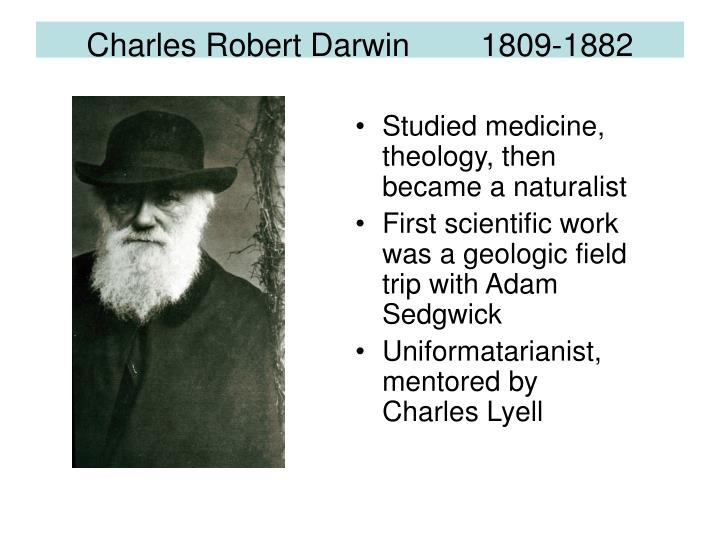Darwin enjoyed every advantage of upbringing, but continually pained his widowed father with his lackluster academic performance. "You care for nothing but shooting, dogs, and rat-catching, and you will be a disgrace to yourself and all your family," his father wrote in a line that nearly always appears just about here in any review of Darwin's early life. Although his inclination was to natural history, for his father's sake he tried to study medicine at Edinburgh University but couldn't bear the blood and suffering. The experience of witnessing an operation on an understandably distressed child—this was in the days before anesthetics, of course—left him permanently traumatized. He tried law instead, but found that insupportably dull and finally managed, more or less by default, to acquire a degree in divinity from Cambridge.

A life in a rural vicarage seemed to await him when from out of the blue there came a more tempting offer. Darwin was invited to sail on the naval survey ship HMS Beagle, essentially as dinner company for the captain, Robert FitzRoy, whose rank precluded his socializing with anyone other than a gentleman. FitzRoy, who was very odd, chose Darwin in part because he liked the shape of Darwin's nose. (It betokened depth of character, he believed.) Darwin was not FitzRoy's first choice, but got the nod when FitzRoy's preferred companion dropped out. From a twenty-first-century perspective the two men's most striking joint feature was their extreme youthfulness. At the time of sailing, FitzRoy was only twenty-three, Darwin just twenty-two.












